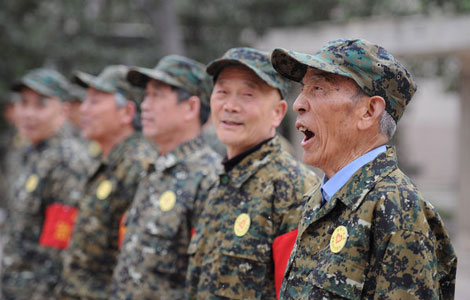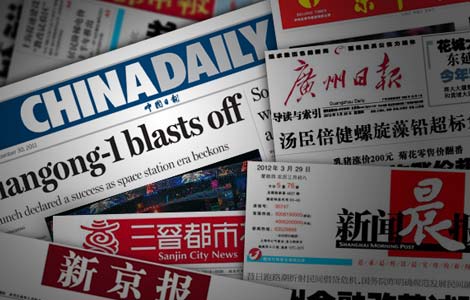 |
|
|
|
|||||||||||
China's exports and imports posted a slower growth rate in March, and imports witnessed lower- than-expected growth, indicating weakening demand and backing up calls for more measures to boost imports.
China's year-on-year export growth slowed from 18.4 percent in February to 8.9 percent in March, according to statistics released on Tuesday by the General Administration of Customs.
Imports saw a deeper slump, with growth slowing from 39.6 percent in February to 5.3 percent in March.
But the relatively faster growth in exports than imports resulted in a trade surplus for the first time this year, with a $5.35 billion surplus in March and an accumulated surplus of $670 million.
Some domestic trade experts said February's surge in imports and exports did not mean too much as the resumption of business after the Lunar New Year usually results in a rebound in imports and exports.
But the 5.3 percent growth in imports is still far below the 9 percent median estimate in a Bloomberg News survey. It has pushed international copper and oil lower on worries about a weakening demand outlook for the leading importer of raw materials.
"The slowdown in imports reflects the slowdown in China's economy. And we have to be alert on the index in the coming months," said Zhou Shijian, a senior trade expert at Tsinghua University.
"The sluggish import growth shows weakening domestic demand and investment growth while exports are stabilizing," Chang Jian, an economist at Barclays Capital in Hong Kong was quoted by Bloomberg as saying.
But Song Hong, director of the international trade office of the Chinese Academy of Social Sciences, said the slowdown in imports may be partly attributed to the slump in major commodity prices such as iron ore and soy, which offset the increase in the trade volume.
And considering sluggish economic growth in external markets such as Europe and Japan, the 8.9 percent export growth is "pretty good", said Song.
Exports to the European Union, China's largest trading partner, fell 1.8 percent in the first quarter. But exports to the United States, rose 12.8 percent, showing that a recovery is underway in the US economy.
Zhang Yansheng, secretary-general of the Academy Committee of the National Development and Reform Commission, said the emerging markets of Russia, India and Brazil are what China could focus on in the future.
(For full story, please see April 11 China Daily, page 14.)

|

|

|

|

|

|